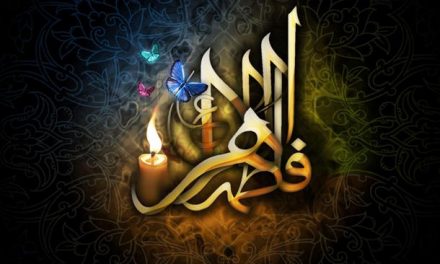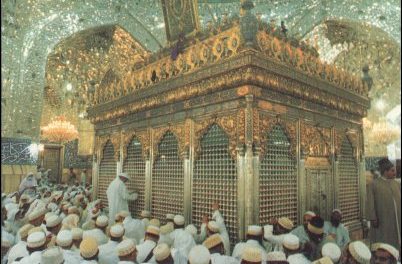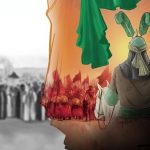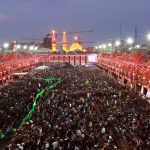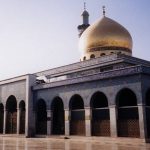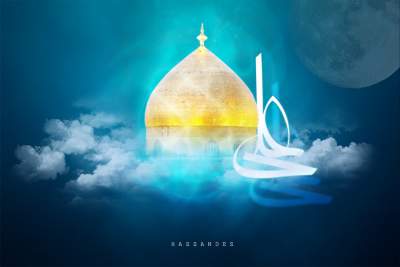
Shi’ism has studied and investigated the primordial nature of man and the continuous tradition of wisdom that has survived among men, It has penetrated into the principal purpose of Islam, which is to revivify man’s primordial nature, and has investigated such things as the methods used by the Prophet in siding the community; the troubles which entangled Islam and the Muslims and which led to division and separation; and the short life of the Muslim governments of the early centuries, which were characterized by negligence and lack of strict religious principles. As a result of these studies Shi’ism has reached the conclusion that there are sufficient traditional texts left by the Prophet to indicate the procedure for determining the Imam and successor of the Prophet.
This conclusion is supported by Quranic verses and hadiths which Shi’ism considers as sound, such as the verses on walayat and the hadiths of Ghadir, Safinah, Thaqalayn, Happ, Manzilah, Da’wat-i’ashirah-i aqrabin, and others. But of course these hadiths, most of which are also accepted by Sunnism, have Otherwise the whole question of succession would not have arisen, Whereas these hadiths appear to Shi’ites as a clear indication of the Prophet’s intention in the question of succession, they have been interpreted by Sunnis in quite another way so as to leave this question open and unanswered.
To prove the caliphate of Ali ibn Abi Talib, Shi’ites have had recourse to Quranic verses, including the following: “Your master [wali] can be only Allah; and His messenger and the those who believe, who establish worship and pay the poor due, and bow down (in prayer) [or, and this reading is accepted by ‘Allamah Tabataba’i: “… pay the poor due while bowing down (in prayer)]”. Shi’ite and Sunni commentators alike agree that this verse was revealed concerning Ali ibn Abi Talib, and many Shi’ite and Sunni traditions exist supporting this view.
Abu Dharr Ghafafi has said: “One day we prayed the noon prayer with the Prophet (PBUH). A person in need asked people to help him, but on one gave him anything. The person raised his hands to the sky saying, ‘Oh God! Bear witness that in the mosque of the Prophet (PBUH) that no one gave me anything.’ Ali ibn Abi Talib was in the bowing position of the prayers. He pointed with his finger outwards towards the person, who then took his ring and left. The Prophet (PBUH), who was observing the scene, raised his head toward heaven and said: Oh God! My brother Moses said to Thee, “Expand my breast and make easy my tasks and make my tongue eloquent so that they will comprehend my words, and make my brother, Aaron, my help and vizier”.
Oh God! I am also Thy prophet; expand my breast and make easy my tasks make Ali my vizier and helper.'” Abu Dharr says, “The words of the Prophet had not as yet finished when the verse [cited above] was revealed.” Another verse which the Shi’ites consider as proof of the caliphate of Ali is this: ” This day are those who disbelieve in despair of (ever harming) your religion; so fear them not, fear Me! This day have I perfected your religion for you and completed My favor unto you, and have chosen for you as religion AL-ISLAM”.
The obvious meaning of this verse is that before that particular day the infidels had hopes that a day would come when Islam would die out, but God through the actualization of a particular event made them lose forever the hope that Islam would be destroyed. This very event is the cause of the strength and perfection of Islam and of necessity could be a minor occasion such as the proclaim of one of the injunctions of religion. Rather, it was a matter of such importance that the continuation of Islam depended upon it.
This verse seems to be related to another verse which comes toward the end of the same chapter: “O Messenger! Make known that which hath been revealed unto thee from thy Lord, for if thou do it not, thou will not have conveyed His message, Allah will protect thee from mankind.” This verse indicates that God commanded a mission of great concern and importance to the Prophet (PBUH) that if not accomplished would endanger the basis of Islam and prophecy. But, the matter was so important that the Prophet (PBUH) feared opposition and interference and in awaiting suitable circumstances delayed it until there came a definite and urgent order from God to execute this command without delay and not to fear anyone.
This matter also was not just a particular religious injunction in the ordinary sense, for to preach one or several religious injunctions is not so vital, that if a single one of them were not preached it would cause the destruction of Islam. The Prophet (PBUH) of Islam did not fear anyone in preaching the injunctions and laws of religion. These indications and witnesses add weight to the Shi’ite traditions which asset that these verses were revealed at Ghadir Khumm and concern the spiritual investiture (wilayat) of Imam Ali ibn Abi Talib (PBUH). Moreover, many Shi’ite and Sunni commentators have confirmed this point.
Abu Said Khudari says: “The Prophet (PBUH) in Ghadir Khumm invited people toward Ali and took his arm and lifted it so high that the white spot on the armpit of the Prophet (PBUH) could be seen. Then this verse was revealed: ‘This day have I perfected your religion for you and completed My favor unto you, and have chosen for you as religion Al-ISLAM.’ Then the Prophet (PBUH) said, ‘God is great (Allahu akbar) that religion has become perfected and that God’s bounty has been completed, His satisfaction attained and the wilayat of Imam Ali (PBUH) achieved.’ Then he added, ‘For whomever I am the authority and guide Ali is also his guide and authority. Oh God! Be friendly with the friends of Ali and the enemy of his enemies. Whoever helps, help him, and whoever leaves him, leave him.”
In a summary, we can say that the enemies of Islam who did everything possible to destroy it, when they lost all hope of achieving this end, were left with only one hope. They thought that since the protector of Islam was the Prophet (PBUH), after his death Islam would be left without a guide and leader; and thus, definitely perish. But, at Ghadir Khumm their hopes were brought to end as the Prophet (PBUH) presented Ali as the guide and leader of Islam to the people. After Ali, this heavy and necessary duty of guide and leader was left upon the shoulders of his family.
Source: al-shia.org

